21 Sep2020
By Katrina Norfleet
With the growing racial unrest in the country, higher education institutions are uniquely situated to promote anti-racism through education, create safe spaces for marginalized communities, engage in coalition building and ensure accountability in addressing bias, harassment and discrimination complaints. Colleges and universities across the country are responding to the current climate and the persistent issues related to diversity, equity and inclusion by appointing Chief Diversity Officers in record numbers. In an upcoming panel session hosted by Rowan University, Chief Diversity Officers at New Jersey higher education institutions will discuss promising gains in reimagining campuses that center the voices of diverse communities and leading institutional change that results in positive outcomes for students, faculty, and staff.
The session, “Dreams Will Not Be Deferred: A Conversation with Chief Diversity Officers on the Status Of Diversity, Equity And Inclusion In New Jersey Higher Education Institutions,” will take place Friday, September 25, 12:00 – 1:30 p.m. Join the conversation at GO.ROWAN.EDU/DEINJCDO.
21 Sep2020
By Monika Williams Shealey
 The horrific image of George Floyd taking his last breath is seared into our hearts and minds. Since that tragic event, we continue to bear witness to racial violence, police brutality, and incidents of discrimination that are played repeatedly in the news and via social media. The cumulative effect of these stressful reports can be traumatizing, and they are having a profound impact on our educators and students of color.
The horrific image of George Floyd taking his last breath is seared into our hearts and minds. Since that tragic event, we continue to bear witness to racial violence, police brutality, and incidents of discrimination that are played repeatedly in the news and via social media. The cumulative effect of these stressful reports can be traumatizing, and they are having a profound impact on our educators and students of color.
Racial battle fatigue (RBF), a term coined by critical race theorist William Smith, reflects the cumulative results of race-related stress. It emerges not only due to macroaggressions, but also from daily microaggressions, such as dismissive and demeaning comments directed at Black and Brown individuals. Basically, RBF is a wearing down based upon one’s racial identity. Some of the symptoms include depression, anger, frustration, and an overwhelming feeling of helplessness that a person of color is unable to contribute to positive change.
RBF is persistent and pervasive, and it manifests in different ways dependent upon who the person of color is and what he or she has experienced in the past. And while RBF impacts every aspect of our society, in higher education and K-12 environments, we predominantly see it’s imprint through hateful, divisive speech on social media, racial profiling in our society and our schools, and discipline policies that differ for students of color.
17 Sep2020
By Angeline Dean
This article is a personal reflection of the 2020 Washington Week Holmes Policy Institute by attendee Angeline Dean.

“People, Policy, Politics, and Processes” – Jane West
The knowledge of this framework and its relation to analysis and advocacy spearheaded the Holmes Advanced Policy Course. This framework, along with homework given by AACTE staffers Jane West and Weade James was not only the necessary grounding to an understanding that truly “all politics are local” but also ripe for Luis Maldonado to address the navigating of politics and policies. Immediately following, Lakeisha Steele, professional staffer and policy team leader for Rep. Bobby Scott (D-VA), chair of the House, Education & Labor Committee, “ripped the runway” with her honesty, passion, and commitment to social and transformational change! She reminded us that “we are our ancestors wildest dreams!” Therefore, we like our ancestors and so many who have transitioned this year, must be prepared to live in “good trouble” spaces and we must Persevere.
“If they don’t give you a seat at the table, bring a folding chair” – Shirley Chisolm.
As we segued into the rest of the Holmes Policy Institute, we were gifted with the Power statement of “Miss Unbought and Unbossed” herself, Shirley Chisolm. How befitting as this statement resonated as an overarching theme for such a time as this. AACTE Dean in Residence Leslie Fenwick challenged us to thwart the narratives that brand Black bodies in lies and deficits. She pushed us to exercise our Positionality as spaces of truth, resistance, power, and countered narratives that honor civil rights ancestors in the proper telling of history and data in education. With that, students posed questions that blended and asserted their politics, processes, power, and positionality as people such as: What exactly is the role of a dean in residence and how or does it relate to Holmes students and their needs? What systems are in place to protect (another p word) BIPOC students against whiteness and internalized racism in predominantly white institutions?
14 Sep2020
By Leslie T. Fenwick
The following article by AACTE Dean in Residence Leslie T. Fenwick is reprinted with permission from Diverse: Issues In Higher Education, 2020.
Dear Generation Z Students,
You are digital natives. So, this letter would better reach you by video, Instagram, Snapchat, maybe Twitter or a hashtag. But I need more letter characters and time than these platforms allow.
Please bear with me as you read. I warn you: First, my history recitation may seem unrelated but stick with me. Second, you might be tempted to read my analysis of White male power as a screed against all White males. It is not.
Did you learn about Pickett’s charge at Gettysburg in your history class? I’d like you to consider this battle as a metaphor for what you’re witnessing now with the murders of George Floyd, a truck driver and bar bouncer laid off due to the COVID pandemic; Breonna Taylor, an EMT and emergency room tech; Ahmaud Arbery, an avid jogger; and, the assault of Christian Cooper, a Harvard grad and bird watcher victimized by a White woman who used an old, violent trick – call the police and lie about being attacked by a Black man .
General George Pickett (known as the Lost Cause General of the Confederate South) fought a losing battle on July 3, 1863. Pickett and his all White male brigade were fighting to maintain an apartheid south built on the brutalizing, free labor of enslaved African men, women, and children. Pickett moved well above the Mason-Dixon Line and took about 12,000 Confederate soldiers straight into the heart of Union territory, Pennsylvania.
14 Sep2020
By Matthew Wales

For much of 2020, COVID-19 has forced AACTE and its members to “think outside the box” and reimagine programming. Just last week, AACTE conducted its inaugural virtual event, with educators coming together to receive advocacy training and learn effective techniques for effectively engaging with political leaders. And in keeping with innovating its professional development opportunities during the current pandemic, the association is pleased to announce the 2020 AACTE Leadership Academy Series.
In lieu of the traditional, in-person, four-day training, this years’ experience will offer a series of interactive sessions for attendees. The six-session experience will take place in two parts, with three sessions to be offered this fall, and the other three sessions to be offered during the 2021 Annual Meeting. Under the theme of “Leading During Difficult Times,” the three fall sessions will explore content in the following areas:
October 14 – Addressing Issues in Diversity, Equity, and Inclusion
October 27 – Collaborative Decision-Making During Crisis
November 10 – Re-Thinking Field Experience
14 Sep2020
By Jacqueline Rodriguez
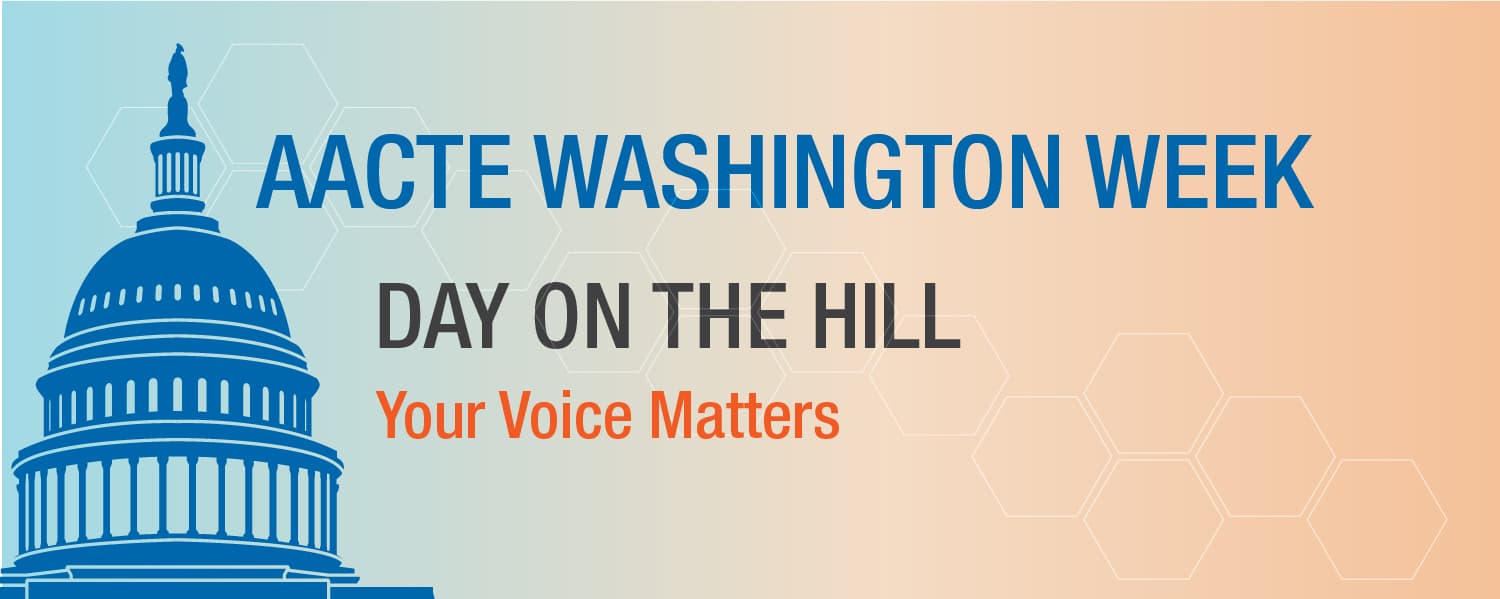 AACTE delivered its first virtual Day on the Hill advocacy event this past week. Over two days, attendees met with Congressional staff, AACTE Committee on Government Relations members, and panelists to develop their advocacy toolkit. This week, the attendees will host two days of Congressional visits with the senators and representatives from their states. AACTE state teams will be advocating for the AACTE 2020 Legislative Priorities, which describe the needs of educator preparation as we address twin pandemics: COVID-19 and racial injustice.
AACTE delivered its first virtual Day on the Hill advocacy event this past week. Over two days, attendees met with Congressional staff, AACTE Committee on Government Relations members, and panelists to develop their advocacy toolkit. This week, the attendees will host two days of Congressional visits with the senators and representatives from their states. AACTE state teams will be advocating for the AACTE 2020 Legislative Priorities, which describe the needs of educator preparation as we address twin pandemics: COVID-19 and racial injustice.
In preparation for their virtual Congressional Visits, attendees practiced how to communicate the priorities to legislative leaders, were briefed on current data related to educator shortages, the important to increase funding toward TEACH grants and Teacher Quality Partnership Grants within educator preparation programs, and the value of funding the Institute for Education Sciences, which is the principal research agency for education in the United States.
In addition, attendees received resources to support their learning. Each of these resources is available to all AACTE members!
11 Sep2020
By Marleen C. Pugach
This article is an excerpt that originally appeared in the AACTE Journal of Teacher Education (JTE) and is co-authored by Marleen C. Pugach, Ananya M. Matewos, and Joyce Gomez-Najarro. AACTE members have free access to the articles in the JTE online archives—log in with your AACTE profile to read the full article.
Preparing teachers for social justice has long been a driving force within teacher education, reflecting a commitment to educating students from multiple social identity groups who are marginalized and oppressed in schools. Given any particular decade, specific social identity markers may take center stage in this work—with new markers gaining visibility as previously neglected identity groups begin to receive vital, much needed attention.
Alongside social justice concerns for equity regarding race, class, ethnicity, gender, language, socioeconomic status and, more recently, sexual orientation and religion, stands the question of disability. As part of the overall vision for social justice, disability is generally viewed as a key social marker of identity. Yet students with disabilities continue to be marginalized and have persistently lower academic outcomes, such as graduation rates, compared to their mainstream peers (U.S. Department of Education, 2015). The connection between social justice and disability was amplified with the emergence of the disability studies in education (DSE) movement in the 1990s, which views disability as a socially constructed phenomenon, shifting its historical definition away from an immutable individual characteristic (Baglieri et al., 2011). Furthermore, the inclusion of students with disabilities itself has long been viewed as a social justice issue (Artiles et al., 2006).
04 Sep2020
By Debra Cano Ramos
This article originally appeared on the California State University, Fullerton new site and is reprinted with permission.
California State Fullerton’s College of Education faculty members are rising up to promote anti-racist teaching and learning.
In response to African Americans killed by police across the country and the disproportionate rate of COVID-19 infections among Black and Latinx communities, the Department of Secondary Education is offering a free webinar series this fall semester to address underlying racist policies and practices that exist in schools, said Natalie Tran, chair of secondary education and professor of educational leadership.
The webinars, open to teachers, teacher candidates, faculty, and community members, focus on dismantling racist policies, practices and ideas that influence schools, teachers and children, and most importantly, on taking actions that address anti-racist teaching.
04 Sep2020
By Hillary Gamblin
The following article is an excerpt of a transcribed podcast interview on the GoReact blog with AACTE board member Marquita Grenot-Scheyer, who serves as the assistant vice chancellor of Educator Preparation and Public School Programs for California State University (CSU). Grenot-Scheyer also sits on the board of directors for the California Commission on Teacher Credentialing. In this episode, she discusses her experience in special education as well as CSU’s exciting initiatives and research.
 When did you realize that you wanted to dedicate your career to teaching students with disabilities?
When did you realize that you wanted to dedicate your career to teaching students with disabilities?
Grenot-Scheyer: I don’t think I realized it until I was a freshman in college, but my mother always reminded me that I talked about wanting to be a teacher from a very young age, and I just have no recollection of that. But my freshman year in college, at California State University, Los Angeles, I had an incredible field experience with some really complex and endearing young people. And that just set the path forward for what I wanted to do.
How Special Education Has Changed Over Time
So, as you mentioned, you began working with students with disabilities in the 1970s. What was it like to do special education at that time, and how has it changed since then?
Grenot-Scheyer: So when I began my career as a special educator, students with disabilities were predominantly served in isolated, segregated schools and classrooms. So that is, all students with disabilities in one facility. And so my first clinical experience was in a segregated school in a small community in Los Angeles, where students with the most challenging behavioral and physical and developmental abilities were all clustered together. And at the time, the feeling and the research said that was the best way to provide services to kids with disabilities. We now know, decades later, based upon research, based upon federal and state laws, that in fact, the best place to educate students with disabilities is in regular schools, alongside typically-developing peers. So the service delivery models have changed dramatically in some schools and in some communities, but in other schools and communities, students with disabilities are still being served in segregated settings. But we now know that’s not the best way to do it.
04 Sep2020
By Andrew Daire

Photo by Clay Banks on Unsplash
This article orginially appeared in University Business and is reprinted with persmission.
We are living in a monumental moment in time. The unjust deaths of George Floyd, Ahmaud Arbery, Breonna Taylor and many others call for greater social justice and equity in our society. While many institutions of higher education and educator preparation programs are talking about equity in education and the need for actionable change, having a deep passion and a meaningful, verbal commitment to social justice is not enough. We cannot move the needle forward in creating a more equitable education system until we address the root areas where change needs to happen—implicit, institutional, and systemic biases.
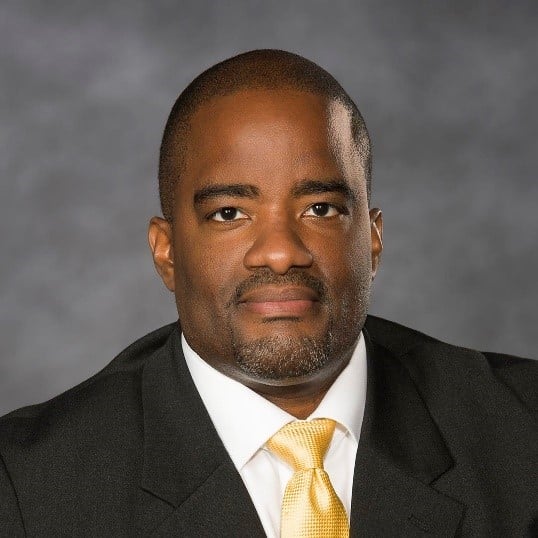 The data is clear. We live in a more segregated society now than the past 30 to 40 years. When students are segregated in elementary, middle and high school, they may not have any meaningful interactions over a long period of time with people who are different from them. When students graduate from high school and enter into a teacher preparation program, they could potentially complete their entire program without ever having a faculty of color.
The data is clear. We live in a more segregated society now than the past 30 to 40 years. When students are segregated in elementary, middle and high school, they may not have any meaningful interactions over a long period of time with people who are different from them. When students graduate from high school and enter into a teacher preparation program, they could potentially complete their entire program without ever having a faculty of color.
Candidates have not adequately learned about racism in America, and they do not possess the context to understand the frustration and anger that underrepresented minorities feel. Students may be offered a gratuitous multiculturalism course in which they superficially learn about diversity, but do not learn about critical race theory, cultural responsiveness and proficiency as a standard part of the curriculum. They may never receive the opportunity to confront their own implicit biases, and then are placed in a classroom full of children with cultural backgrounds that they simply do not understand. From the lens of the children in the classroom, they do not see a teacher who looks like them or that they can relate to, and therefore, they are not drawn to pursuing a career in education.
01 Sep2020
By Weade James
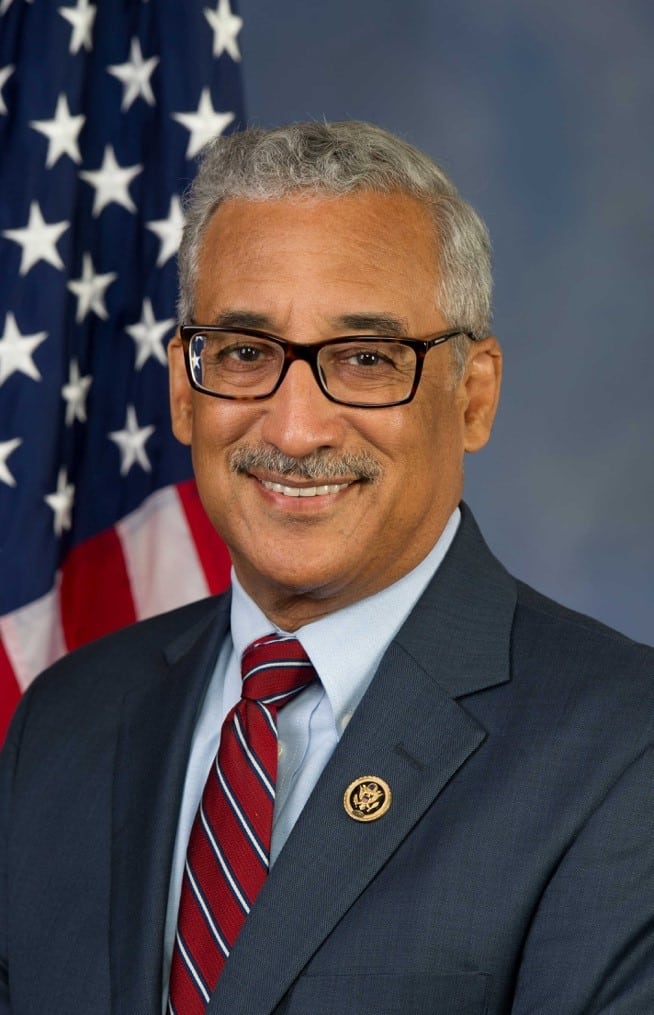 AACTE’s Washington Week virtual conference is quickly approaching. This year’s event will feature the Holmes Advanced Policy Short Course, Holmes Policy Institute, AACTE’s Day on the Hill, and the State Leader’s Institute.
AACTE’s Washington Week virtual conference is quickly approaching. This year’s event will feature the Holmes Advanced Policy Short Course, Holmes Policy Institute, AACTE’s Day on the Hill, and the State Leader’s Institute.
Joining the Holmes Policy Institute this year is Congressman Robert C. “Bobby” Scott, chairman of the Committee on Education and Labor. Congressman Scott will deliver the closing keynote address at this year’s Holmes Policy Institute on Thursday, September 10.
Throughout his 14 terms representing Virginia’s third congressional district, Congressman Scott has been a champion on issues of diversity, equity and inclusion. He has advanced policies to address the equity gaps in education, employment, and healthcare. In 1993, Chairman Scott became the first African American elected to Congress from the Commonwealth of Virginia since Reconstruction and only the second African American elected to Congress in the history of Virginia. Congressman Scott continues to break barriers and create opportunities for future generations of African American and minority leaders.
Following his keynote remarks, the Congressman will engage in an interactive discussion with the Holmes Scholars about the state of public education, educator preparation, and the importance of diversifying the educator workforce.
To learn more about the AACTE Holmes Program, contact me at wjames@aacte.org.
28 Aug2020
By Weade James
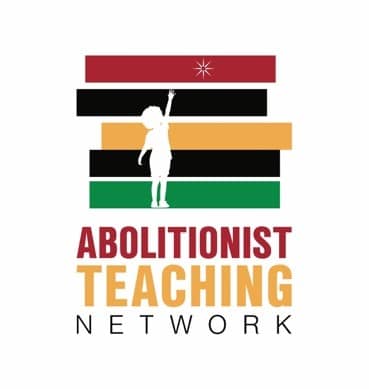
The Abolitionist Teaching Network recently released a Guide for Racial Justice and Abolitionist Social and Emotional Learning (SEL). Founded by educators and activists, the Network’s mission is to develop and support educators to fight injustice in their schools and communities.
The Guide for Racial Justice and Abolitionist SEL seeks to engage teachers and administrators in critical reflection and action to address the injustices that impact Black, Brown, and Indigenous students and families. It also challenges educators to abandon the Eurocentric approach of SEL that promotes the use of school resource officers and exclusionary discipline practices. Instead, educators are encouraged to adopt abolitionist practices of SEL that are culturally responsive, reciprocal in nature, transformative and centered on healing.
The guide also accentuates the important role of educator preparation programs to prepare more Black, Brown, and Indigenous teachers, school counselors and administrators. Research consistently suggest that all students benefit from having diverse educators, including increased academic and social emotional outcomes. Diverse educators also have unique attributes that can break down racial stereotypes, and an innate ability to affirm Black, Brown, and Indigenous students’ sense of belonging.
Read more about the guide and resources to promote anti-racist teaching and learning.
27 Aug2020
By Nicole Dunn
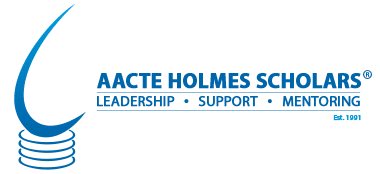 Having a Holmes Program at your institution is an excellent way to provide professional development and student support for racially diverse candidates in educator preparation programs (EPPs). With the upcoming financial challenges COVID-19 will bring to funding efforts that will lead to diversification in the field, AACTE is committed to helping provide those development opportunities with a new resource—the Holmes Program Coordinators Directory.
Having a Holmes Program at your institution is an excellent way to provide professional development and student support for racially diverse candidates in educator preparation programs (EPPs). With the upcoming financial challenges COVID-19 will bring to funding efforts that will lead to diversification in the field, AACTE is committed to helping provide those development opportunities with a new resource—the Holmes Program Coordinators Directory.
Are you interested in expanding or creating a Holmes Program? AACTE Holmes Program Coordinators have the experiential knowledge to share with those looking to learn more about the benefits and logistics to starting a Holmes Program at the Masters or Doctoral level. You can learn more by accessing the new Holmes Program Coordinators Directory in the AACTE Resource Library.
19 Aug2020
By MarÍa del Carmen Salazar
Meet Maria, a Mexican American student who entered school with a suitcase full of treasures—including her culture, family traditions, and experiences. She called her suitcase a maleta. Her teachers made it clear that her maleta was not welcome. While she was never explicitly told to leave her treasures at the classroom door, through their curricula, instruction, and assessment practices, her teachers made it known that her culture did not and have value and would hinder her learning. They gave her a new maleta, one filled with the U.S. culture; they believed this maleta would serve her better. As a result, she felt deep shame over the most essential elements of her humanity.
I am Maria—and to this day, I feel the pain of my teachers stealing my humanity.
Teacher evaluation at the center of inequity
Today, our nation is focused on inequities in our education and justice systems. While many school districts and universities have released diversity and social justice statements, the harsh reality remains that some areas within our education system are obstructions to racial equity in our schools—including teacher evaluation tools. This negligence has a profound, lifelong impact on culturally and linguistically diverse (CLD) learners. It is time for education leaders to challenge white supremacy and racial bias in teacher evaluation.
19 Aug2020
By Weade James
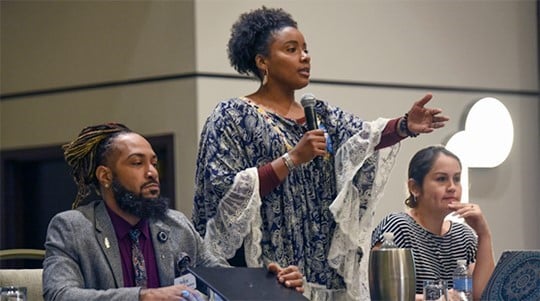
The AACTE 2020 Washington Week will feature two virtual Holmes Program events: the Holmes Advanced Policy Course, September 2-3, and the Holmes Policy Institute, September 8-10.
Holmes Advanced Policy Course: September 2-3
The Holmes Program Advanced Policy Course will engage Holmes Scholars in “Moving Towards Equity Through Advocacy and Policy,” the theme of this year’s event. Participants in the Course will explore policy and advocacy principles and address current events that focus on diversity, equity, and inclusion (DEI) in education. The sessions include a deep dive into the 4 P’s of Policy and Advocacy, led by Jane West, AACTE Consultant for Government Relations, and will conclude with an engaging Q&A forum. Scholars will also hear from congressional staffers from Capitol Hill, who will address current issues and trends in education that align with DEI policies and practices.







 The horrific image of George Floyd taking his last breath is seared into our hearts and minds. Since that tragic event, we continue to bear witness to racial violence, police brutality, and incidents of discrimination that are played repeatedly in the news and via social media. The cumulative effect of these stressful reports can be traumatizing, and they are having a profound impact on our educators and students of color.
The horrific image of George Floyd taking his last breath is seared into our hearts and minds. Since that tragic event, we continue to bear witness to racial violence, police brutality, and incidents of discrimination that are played repeatedly in the news and via social media. The cumulative effect of these stressful reports can be traumatizing, and they are having a profound impact on our educators and students of color.

 AACTE delivered its first virtual Day on the Hill advocacy event this past week. Over two days, attendees met with Congressional staff, AACTE Committee on Government Relations members, and panelists to develop their advocacy toolkit. This week, the attendees will host two days of Congressional visits with the senators and representatives from their states. AACTE state teams will be advocating for the
AACTE delivered its first virtual Day on the Hill advocacy event this past week. Over two days, attendees met with Congressional staff, AACTE Committee on Government Relations members, and panelists to develop their advocacy toolkit. This week, the attendees will host two days of Congressional visits with the senators and representatives from their states. AACTE state teams will be advocating for the  When did you realize that you wanted to dedicate your career to teaching students with disabilities?
When did you realize that you wanted to dedicate your career to teaching students with disabilities?
 The data is clear. We live in a more segregated society now than the past 30 to 40 years. When students are segregated in elementary, middle and high school, they may not have any meaningful interactions over a long period of time with people who are different from them. When students graduate from high school and enter into a teacher preparation program, they could potentially complete their entire program without ever having a faculty of color.
The data is clear. We live in a more segregated society now than the past 30 to 40 years. When students are segregated in elementary, middle and high school, they may not have any meaningful interactions over a long period of time with people who are different from them. When students graduate from high school and enter into a teacher preparation program, they could potentially complete their entire program without ever having a faculty of color. AACTE’s Washington Week virtual conference is quickly approaching. This year’s event will feature the Holmes Advanced Policy Short Course, Holmes Policy Institute, AACTE’s Day on the Hill, and the State Leader’s Institute.
AACTE’s Washington Week virtual conference is quickly approaching. This year’s event will feature the Holmes Advanced Policy Short Course, Holmes Policy Institute, AACTE’s Day on the Hill, and the State Leader’s Institute.
 Having a
Having a 